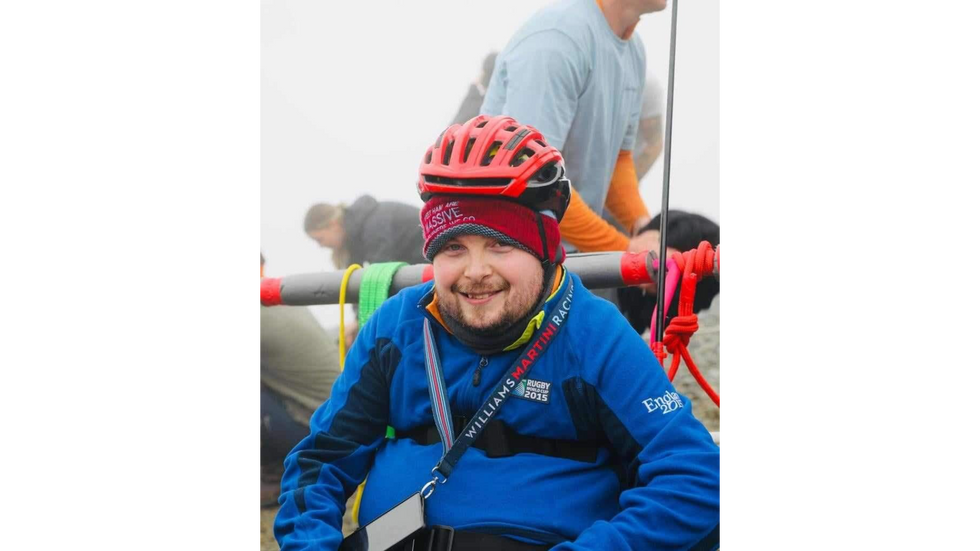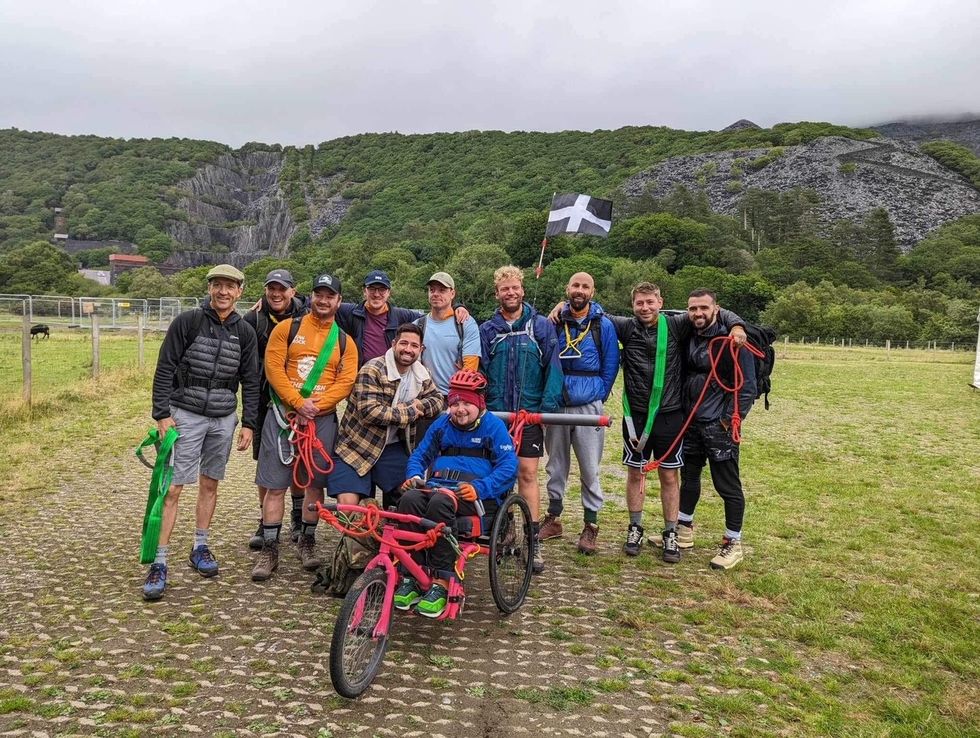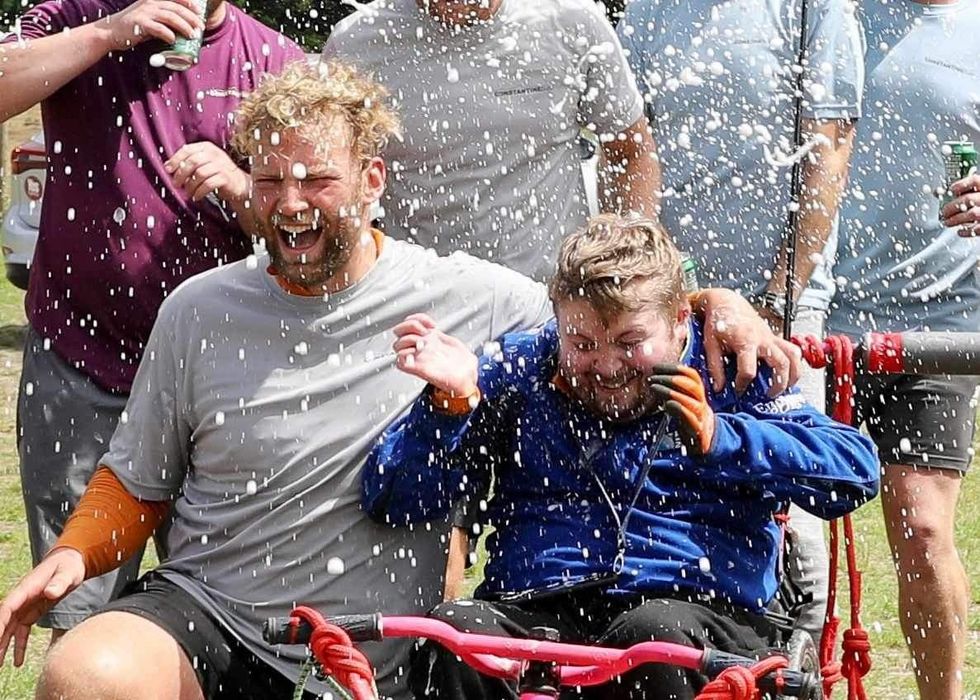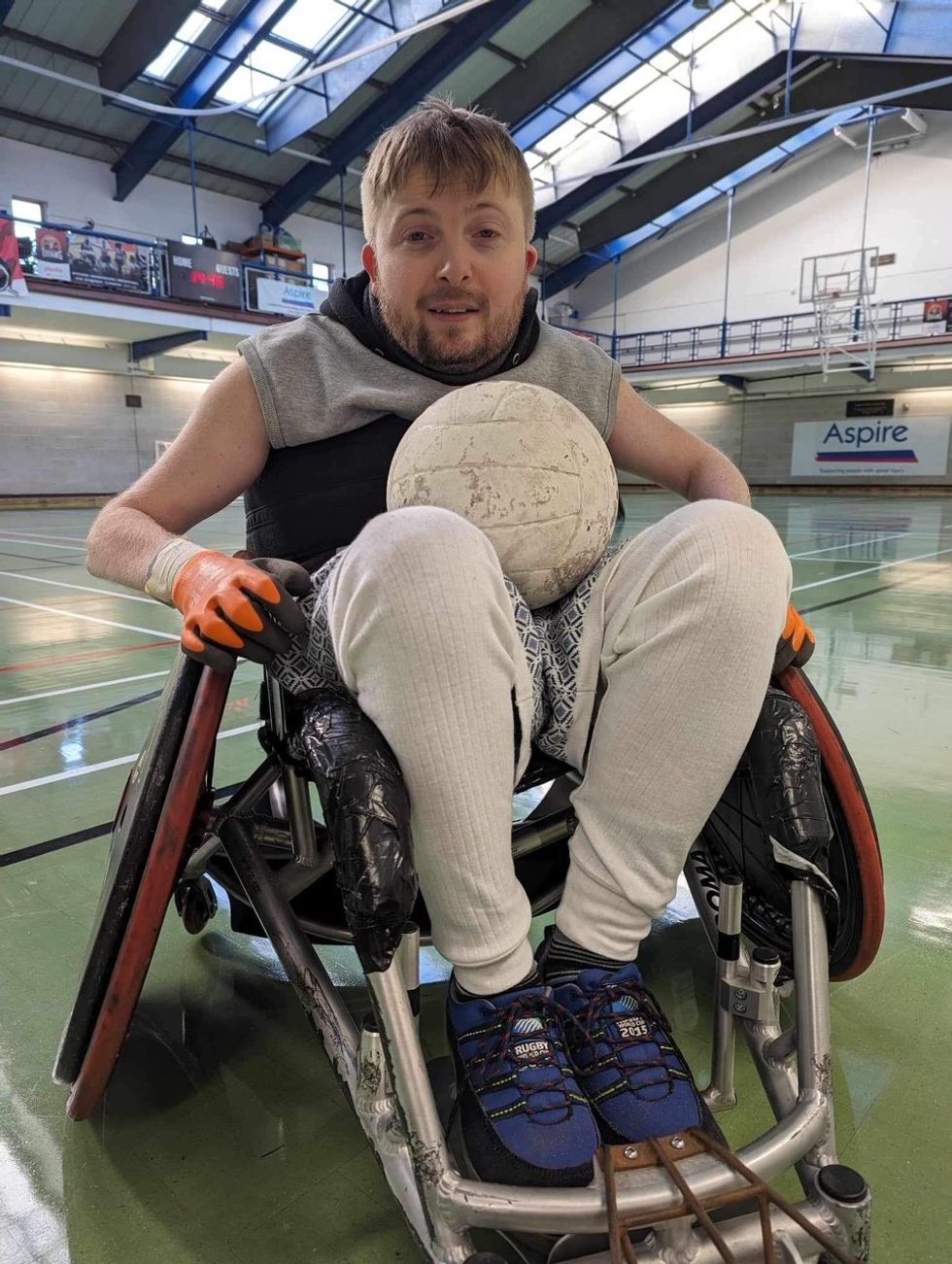
A British man aiming to become the first complete spinal injury tetraplegic to climb Mount Kilimanjaro said he is “massively excited” to finally attempt the challenge he had wanted to undertake before his injury.
Max Levene, 31, told the PA news agency he set his sights on reaching the summit of the largest mountain in Africa while living in Kenya when he was 17 but three months later he broke his neck while playing rugby.
Mr Levene, a civil servant based in east London, said: “I actually broke my neck while playing rugby for my school in England, and at that point, obviously, my life changed significantly and I just never even considered climbing the mountain would ever be an option.

“Frankly, I thought my life was kind of over at that point.”
Mr Levene, who is paralysed from the chest down, will be taking on the 5,895 metre (19,340 ft)-challenge in September in a specialised wheelchair with the help of a carer and a support team.
He said: “Since I’ve been with my partner, I’ve been encouraged to take on more and more opportunities by her and slowly did more and more things and then because of doing those things, someone came to me and said, ‘how about climbing Mount Kilimanjaro?’
“It felt like a full-circle moment so I said yes to it.”
He added: “In one way, I’m massively excited and in another way it’s quite nerve-racking.
“I can’t control my body temperature very well, as someone with my injury, so I’m going to have to make sure that I really keep warm.
“On top of that, I guess just the altitude and the fitness because I’ve got a weakened lung capacity and I’m obviously very limited in my physical capabilities, so it’s going to be a real physical challenge.
“I think it’d be one of those moments where you kind of have to pinch yourself and just be like, ‘I’ve achieved so much from what I think I would have achieved’.

“It sounds a bit cheesy, but when I’m dying, I’ll be able to look back and go, actually I did that thing.”
Mr Levene, a graduate of the University of East Anglia, added: “I’m proud of myself and feel proud of the people around me that helped me achieve it, like my partner and my mother and my best friends that were with me when I broke my neck, that are going up the mountain with me, so yeah it makes it emotional to say that.”
Determined to not let his disability hinder him, Mr Levene started playing wheelchair rugby despite reservations from his mother.
“My mother made me promise after my injury never to play wheelchair rugby, because she can’t be put through this again,” he said.
“I played for about a year in secret before eventually, I told my mother.
“I got her on a good day when she had a couple of glasses of wine and she was with a friend, so she isn’t going to be too angry.
“Actually, she took it really well and she said, like, ‘actually, I feel like you’re stronger now than you were, you’re not as vulnerable as you were when you first injured yourself’, and I think she’s actually pleased I’m doing it now.”

Mr Levene said he wants to inspire others with his challenge, speak out as a disability rights advocate, and raise money for charity.
So far he has raised more than £2,100 for the Inspire Foundation and RFU Injured Players Foundation while documenting his efforts at @Max_Levene1 on X, formerly Twitter.
He explained: “I’ve always felt like I’ve been in a very privileged position in some ways because my disability, while it’s very severe, it’s not affected me in a cognitive way and I feel like in many ways, people with that ability to experience disability but also have the ability to speak out should probably speak out.
“The message I want to spread with this isn’t so much ‘go climb a mountain’, it’s more, do the thing that you can achieve, that you might have been putting off – be that getting out of bed for the day, or doing an activity that, because you’ve struggled with it, you’ve not been doing it.”
To donate to the fundraiser, visit gofundme.com/f/climb-mount-kilimanjaro-in-my-wheelchair.













